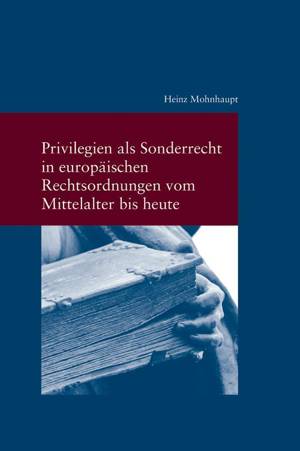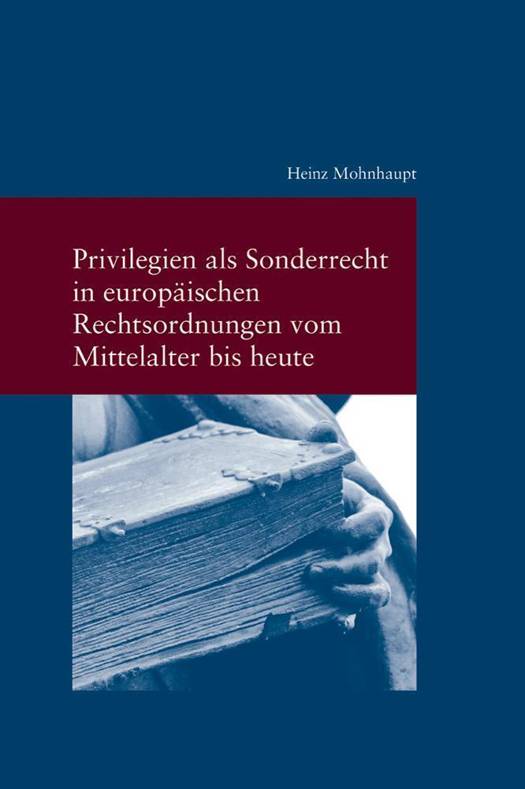
- Afhalen na 1 uur in een winkel met voorraad
- Gratis thuislevering in België vanaf € 30
- Ruim aanbod met 7 miljoen producten
- Afhalen na 1 uur in een winkel met voorraad
- Gratis thuislevering in België vanaf € 30
- Ruim aanbod met 7 miljoen producten
Zoeken
Privilegien ALS Sonderrecht in Europaischen Rechtsordnungen Vom Mittelalter Bis Heute
Heinz Mohnhaupt
€ 146,95
+ 293 punten
Omschrijving
Today, "privileges" as part of the political-social language are generally marked with a negative connotation, as they contradict the justice value of "equality" in state and society. The original legal meaning of this ubiquitous term, dating back to Roman canon law, is now largely obliterated. The author traces the European history of "privilegia" and their significance for the development of law, state, and society in the longue duree. This account is accompanied by an extensive, territorially structured source survey, which was originally intended to a lesser extent for Coing's handbook (vol. II/3), and a bibliography classified by subject matter from the Middle Ages to the present day. Thus, by accentuating the difference between the respective law for individuals, groups of persons, and territorially determined areas of validity, it unfolds that privileges also represent an individualized value of justice, which only the Enlightenment attempted - often in vain - to replace by applying the modern sense of "egalite" and the generally effective law.
Specificaties
Betrokkenen
- Auteur(s):
- Uitgeverij:
Inhoud
- Aantal bladzijden:
- 85
- Taal:
- Duits
- Reeks:
- Reeksnummer:
- nr. 343
Eigenschappen
- Productcode (EAN):
- 9783465046240
- Verschijningsdatum:
- 15/05/2024
- Uitvoering:
- Paperback
- Formaat:
- Trade paperback (VS)
- Afmetingen:
- 160 mm x 240 mm
- Gewicht:
- 349 g

Alleen bij Standaard Boekhandel
+ 293 punten op je klantenkaart van Standaard Boekhandel
Beoordelingen
We publiceren alleen reviews die voldoen aan de voorwaarden voor reviews. Bekijk onze voorwaarden voor reviews.











